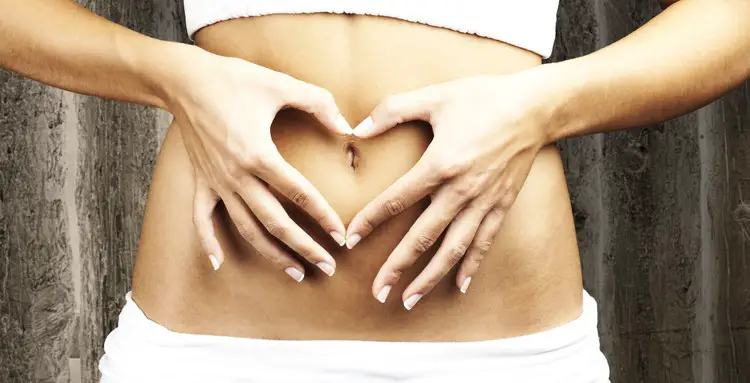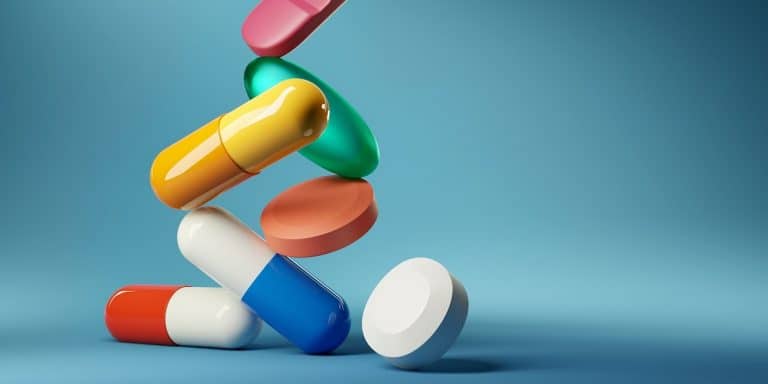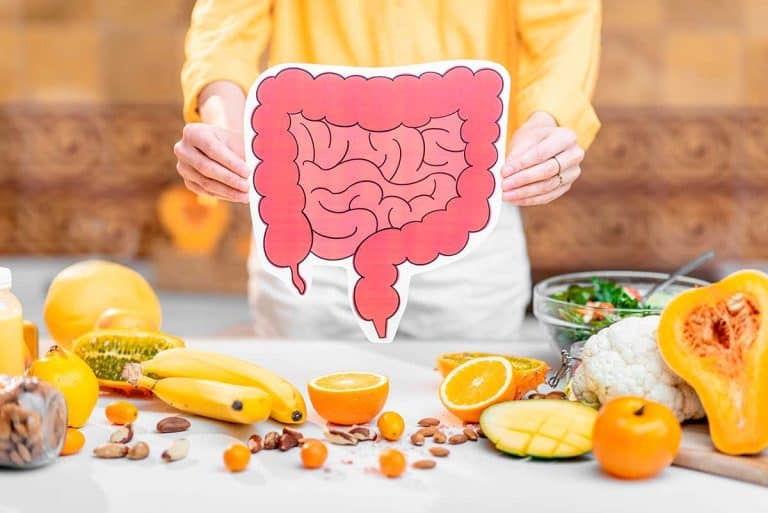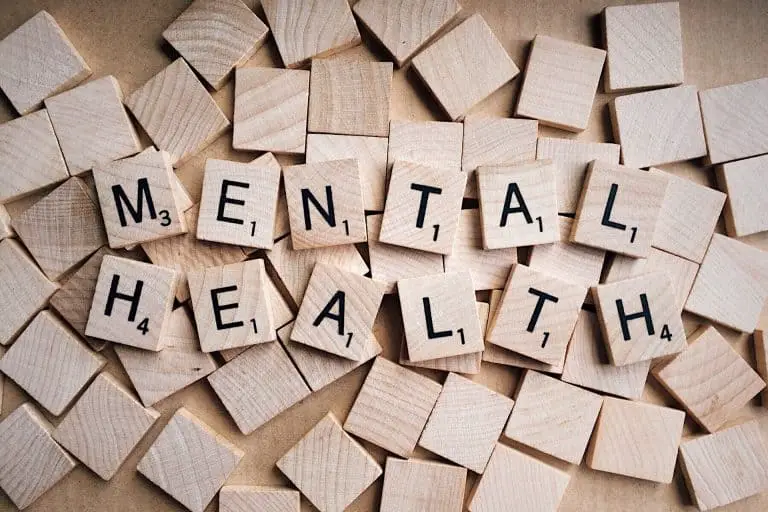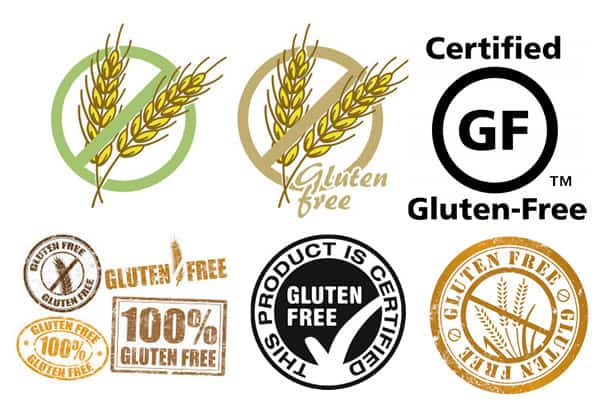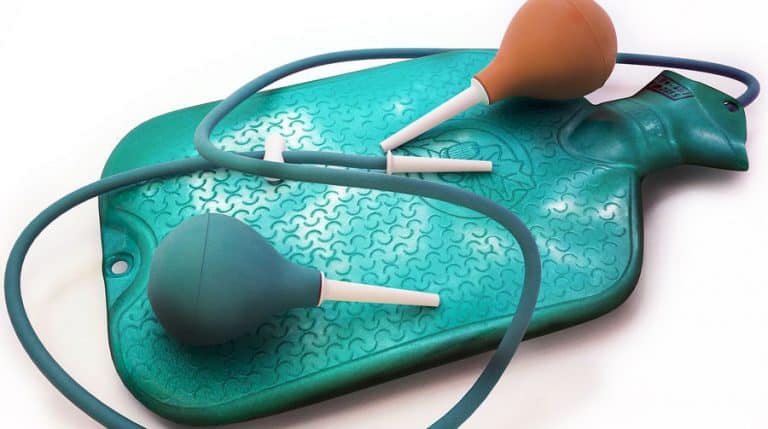8 Surprising Benefits of Probiotics that Go Beyond Gut Health
Think probiotics are just about gut health? Sure, these friendly bacteria are great for your gut, but the benefits of probiotics extend far past your gut. In fact, they benefit your body from head to toe.
But first things first. Before we really go in-depth about what probiotics can do for your body, we need to talk about what they are. You have probably heard the word thrown around in yogurt commercials but do you really know what probiotics do?
In basic terms, they are live bacteria and yeasts that are closely tied to gut health. If you can imagine your body as a battlefield, the probiotics are the good guys who are fighting to keep the harmful bacteria at bay.
In fact, your body has over 400 different species of bacteria. You are literally carrying around more than two pounds of this bacteria at any given moment. Both gross…and fascinating.
So what do probiotics do?
Most of us know about probiotics and their relationship to our gut. They are incredibly important to maintaining a healthy digestive system. They keep the peace between the harmful and beneficial bacteria in our stomachs.
By doing this, they help out with things like diarrhea, upset stomach, lactose digestion, irritable bowel syndrome, and inflammatory bowel disease. This is incredibly important for your long-term gut health as well as helping you through those days when you can’t resist spicy takeout or that late-night pint of ice cream.
But, did you know that probiotics can do far more than just help your aching belly?
They can actually help your immune system function better while reducing allergies and eczema symptoms. Probiotics can even help your oral health. Sound too good to be true? You won’t believe how they can affect your mental health then!
Not only does your gut have a major impact on the rest of your body but so does your bacterial balance. Every square inch of you is affected by a delicate bacterial balance. Probiotics affect that balance and can make a major impact on nearly every aspect of your health. So, if you want to prevent infections and lose a little weight, you might have found your new best friend!
Before you start guzzling the kefir though, let’s get our facts together about what probiotics can do for your body. Here’s what the research shows about the effect these amazing little bits of bacteria have on you from head to toe.
Probiotics and your immune system
One of the coolest benefits of probiotics is that it provides a huge boost for your overall immune system. By producing their own form of antibiotics, probiotics are able to block pathogens from sticking to your gut while also stimulating the production of chemical messengers called cytokines which communicate with your immune system.
The result? You get sick less often.
There’s even research showing this boost playing out in real life. A Swedish study following 262 workers found that the people who took probiotics for 80 days were 42% less likely to take a sick day for an upper respiratory infection or gastrointestinal disease.
So be good about taking your probiotics regularly and you can save your sick days for fun stuff rather than suffering from bronchitis.
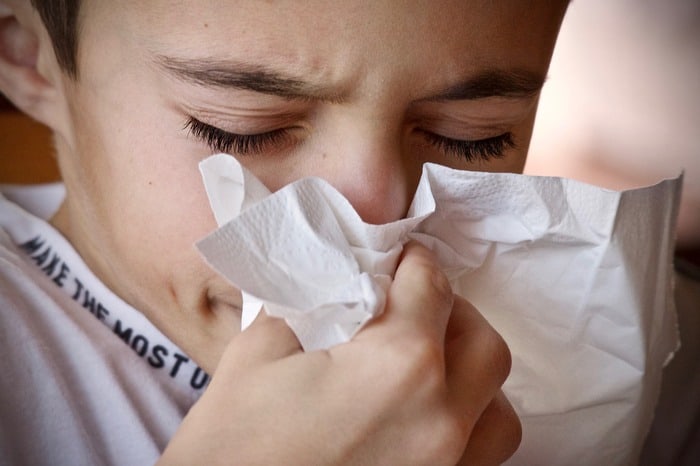
Probiotics and eczema
As you know, your stomach is jampacked with bacteria – in fact, the bacteria in your stomach outnumber the cells in your body 10 to 1! That’s a pretty amazing stat and it helps to explain why bacteria plays such a major role in our overall health.
Approximately 80% of your immune system is located inside of your digestive tract. The 100 trillion bacteria living inside your GI tract are major players in how your body produces vitamins and nutrients and how it detoxifies itself.
No part of your body can be looked at in isolation. Every single bit of you is tied together and it’s important to have a good understanding of this amazing level of interconnectivity, especially when looking at how gut health affects your skin.
A recent study was done looking at how probiotics can affect skin health and the results were truly astonishing. Kids who were at high risk for developing eczema were given probiotics (Lactobacillus rhapsodic GG or Lactobacillus rhamnosus strain HN001) to see how it affected their skin. The children who were taking probiotics were shown to have cut their risk of eczema by a whopping 50%.
An additional 13 studies have been carried out testing the link between probiotics and atopic dermatitis (AD, one of the most common forms of eczema). These studies have consistently found that probiotics, particularly Lactobacillus rhamnosus GG, are effective in preventing AD.
Probiotics and allergies
Researchers dug through the data from dozens of studies that looked at the effect that probiotics can have on hay fever. The new study, which was published in the International Forum of Allergy & Rhinology, looked at 23 trials that scrutinized the results from more than 1,900 people.
The bulk of the results showed that on average 17 out of 23 people found an improvement in their allergy symptoms after taking supplements or including probiotics-rich foods into their diet.
If you think about it, it makes sense. In reality, allergies are simply an overreaction by our immune systems. If you can help keep your immune system in check, you can help to fight against these overreactions to things like dust, dander, wheat, pollen, and dairy.
Probiotics have been proven to help in many cases and have been declared effective even in dealing with very specific types of allergies like birch pollen allergy in children and cedar pollen allergy in adults.
Probiotics and oral health
After the common cold, dental caries AKA tooth decay is the most common disease on the planet. There are more than 600 different species of bacteria inside your mouth. While some of them are essential to healthy processes, many of them are nothing but trouble.
Did you know that tooth decay is actually caused by bacteria? Streptococcus sorbinus, Streptococcus mutans, and Porphyromonas gingivalis are the primary culprits in tooth decay. These little monsters eat away at the hard tooth surface and cause acid demineralization of the enamel. This process is what causes cavities to form.
Recent research has found that probiotics can do everything from blocking tooth decay to preventing bad breath. Scientists have found that the bacteria lactobacilli stops the growth of periodontopathogens, which causes gingivitis and periodontitis.
A different study found that drinking lactic acid bacteria on a daily basis made a major impact in overall oral health. People who regularly consume probiotics were found to have less tooth decay and fewer issues with bad breath.
Like we saw before, it’s all about bacterial balance and probiotics can help get your body in check. Because of this, the imbalance of the commensal microflora that causes bad breath can be pushed back into balance through a probiotic-rich diet.
Probiotics and mental health
Happiness is one of the most astonishing side effects of probiotics! Believe it or not, these amazing bacteria can actually improve your mental health. According to a study published in Biological Psychiatry, probiotics are “a live organism that, when ingested in adequate amounts, produces a health benefit in patients suffering from psychiatric illness.”
Another study that gave participants a probiotic-rich diet for just 30 days concluded that “gut microflora play a role in stress, anxiety, and depression… and that probiotics may be useful as adjunct therapies in psychiatric disorders.”
Pretty exciting stuff, isn’t it?

Probiotics and yeast infections
Just like the rest of our bodies, the vagina needs a very particular blend of good and bad bacteria. If something is ever so slightly off, you’ll wind up with bacterial vaginosis and yeast infections.
The bad news is that it’s incredibly common to get an imbalance that results in a yeast infection. The good news is that there’s something you can do about it.
Several studies were done with the probiotic, lactobacillus acidophilus, used as vaginal suppositories. When treated with regular probiotics, women were not only able to shake current infections, they were also able to prevent recurring infections as well.
Probiotics’ ability to prevent vaginal infections is particularly important for pregnant women. Did you know that bacterial vaginosis is a major cause of premature labor? In the bigger picture, not only does infection prevention help women, but it also helps their newborns.
Probiotics and urinary tract infections
While probiotics alone can’t stop urinary tract infections, they can go a long way in moving antibiotic treatment forward. According to new research, a consistent diet of probiotics can prevent harmful bacteria from growing in the urinary tract while helping to sustain positive bacteria growth.
Sadly, urinary tract infections are all too common, particularly for women. While they are very treatable, they tend to keep boomeranging back like a clingy ex. Nearly 40% of urinary tract infections return in the future so it’s incredibly important to focus on prevention rather than treatment.
Another interesting read: Probiotic Side Effects
Probiotics and obesity
Research into the effect that probiotics can have on weight began back in 2006 when researchers at Stanford University first discovered that obese people actually have a different flora of gut bacteria than normal-weighted people. This was the first time that scientists really started to take the correlation between weight and probiotics seriously.
As research has advanced, even more links have been found. We now know that probiotics lactobacillus and bifidobacterium can help to reduce waist circumference size. A study from 2012, reported by Medical News Today, also found that bacteria inside of the large intestine actually slows down the burning of energy-burning brown fat, which is a major factor in the development of obesity.
In spite of the very dull-sounding name, some really exciting new research is being done with probiotic bacteria E. coli Nissle 1917. Researchers have found that when the bacteria is metabolized, it turns itself into a hunger-suppressing lipid. When tested on mice, they found that the mice were able to reduce body fat and had a lower risk of diabetes even if they didn’t change their diets.
Scientists at Vanderbilt University are taking things a step further and trying to make the E. coli Nissle 1917 bacteria produce N-acyl-phosphatidylethanolamines (NAPEs), which is the kind of bacteria that your body produces after a meal to signal that you are full and don’t need more food.
“We genetically modified the intestinal bacteria E. coli Nissle 1917 to secrete NAPEs by expressing NAPE acyltransferase (pNAPE-EcN),” the Vanderbilt University team explained. “We found that administration of pNAPE-EcN bacteria to mice in their drinking water markedly inhibited body weight and body fat gain of mice fed a high-fat diet compared to mice administered control bacteria or vehicle only.”
“Our studies provide proof-of-concept that incorporating bacteria engineered to secrete NAPE into the gut microbiota can be an effective long-term strategy for inhibiting the development of obesity and provide insight into the mechanisms of action of these therapeutic bacteria,” they said.
Ultimately, weight loss is a complicated business but this is some incredibly promising news. For those of us who are struggling to lose weight, a slight change in the bacteria of our bodies can create truly life-changing results.
Of course, with all of these results, it’s important to remember that these changes were achieved through a regular intake. In other words, a massive bowl of yogurt once a week isn’t going to get you far. Like so many things in life, consistency is key. If you want to see a real effect, you need to aim for at least one probiotic-rich food every single day. “Without regular intake, probiotics do not survive in the colon for more than one or two weeks,” says dietitian Sue Mah.
Bottom line? Find a source of probiotics that works for you, take ’em regularly and you’ll see major results – literally from head to toe!
Disclaimer: While our team of medical expert writers makes every effort to convey the correct, relevant, and most up-to-date information, you should never disregard advice given to you by your medical practitioner or delay seeking medical assistance because of something you have read on Gutsify or received in correspondence from Gutsify. Please refer to our Terms and Conditions.

